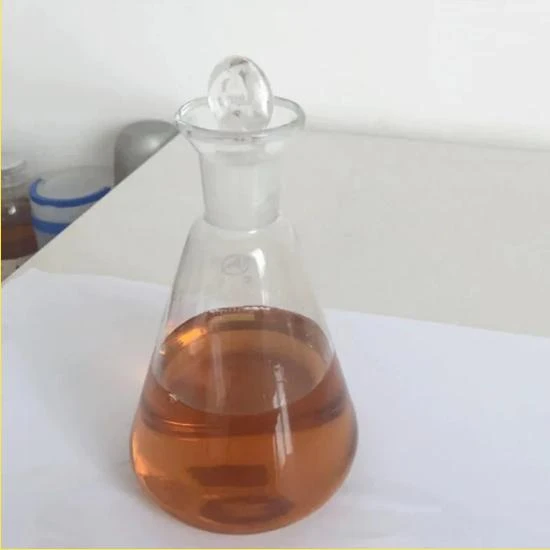
Natural Ingredients for Preserving Food Quality and Freshness
Natural Preservatives for Food A Sustainable Approach to Food Preservation
In an era where health consciousness is on the rise, the demand for natural food products is becoming increasingly significant. Consumers are turning away from synthetic additives and looking for healthier alternatives. This shift has brought natural preservatives to the forefront of the food industry, offering a sustainable solution to preserve food without compromising quality or safety.
Natural preservatives are substances derived from natural sources—plants, animals, or minerals—that inhibit spoilage and extend the shelf life of food products. Unlike their synthetic counterparts, natural preservatives are generally regarded as safer and more beneficial for health. They not only help with food preservation but can also enhance flavor, color, and nutritional value.
Common Natural Preservatives
1. Vinegar One of the oldest natural preservatives, vinegar is known for its antimicrobial properties. Its high acidity creates an unfavorable environment for bacteria, helping to preserve pickles, sauces, and dressings. The versatility of vinegar allows it to be used across a spectrum of foods, making it an invaluable ingredient in food preservation.
2. Salt Salt has been used for centuries to preserve food by drawing moisture out of food items and inhibiting bacterial growth. It is commonly used in curing meats, pickling vegetables, and enhancing the shelf life of cheeses. Modern consumers have also embraced natural sea salts, adding an artisanal touch to food preservation.
3. Honey Known for its natural preservative qualities, honey possesses antibacterial properties that prevent microbial growth. Its high sugar content also helps in moisture retention. Honey is often used in jams, jellies, and marinades, providing not only preservation but a rich flavor profile.
4. Citrus extracts The citric acid found in citrus fruits like lemons and limes is a powerful natural preservative. It is effective in preventing oxidation and browning in products like guacamole and sliced apples. Additionally, citrus extracts add a fresh flavor, appealing to consumers looking for natural enhancements.
5. Herbs and Spices Many herbs and spices, such as garlic, rosemary, and cinnamon, contain natural antioxidants and antimicrobial properties. These ingredients are commonly used in marinades and dressings, contributing both preservation and a distinctive flavor that enhances the overall taste of the dish.
natural preservatives for food

The Benefits of Natural Preservatives
The use of natural preservatives aligns with a growing consumer preference for clean label products—foods that are minimally processed and free from artificial ingredients. As consumers become more educated about food sources, they show an increased preference for transparency in food labeling. Natural preservatives provide that transparency by offering safer and recognizable ingredients.
Another significant benefit is the environmental impact. The production and use of synthetic preservatives often involve chemical processes that can be harmful to the environment. In contrast, natural preservatives are often derived from renewable resources, promoting sustainability. This shift not only supports ecological well-being but also fosters a connection to traditional food practices, encouraging consumers to embrace their culinary heritage.
Challenges and Innovations
While the benefits of natural preservatives are evident, there are challenges to their widespread adoption. Natural preservatives often have shorter shelf lives and may not be as potent as synthetic preservatives, which can lead to inconsistencies in food preservation. However, innovations in food technology are paving the way for more effective applications of natural preservatives. Research into natural extraction methods and combinations is leading to products that maintain both safety and quality over longer periods.
Moreover, educating consumers on the importance of natural preservatives can bolster their acceptance. As awareness grows, consumers are likely to advocate for natural options in food products, encouraging manufacturers to adopt these safer ingredients.
Conclusion
Natural preservatives offer a viable and sustainable solution in the quest for longer-lasting food products. With benefits that extend beyond preservation—enhancing flavor, nutritional value, and safety—they align with modern consumer demands for healthier and environmentally friendly options. The future of food preservation looks promising as innovations continue to emerge, making natural preservatives a key player in the food industry’s evolution. Embracing this shift not only supports personal health but also contributes to a more sustainable food system, ensuring that what we eat is both good for us and our planet.
-
Understanding Synthetic Rubber OptionsNewsApr.27,2025
-
Trichloroisocyanuric Acid: Essential for Clean and Safe WaterNewsApr.27,2025
-
Sodium Dichloroisocyanurate: Key to Safe Water TreatmentNewsApr.27,2025
-
Sodium Acid Pyrophosphate: Essential in Modern Food ProcessingNewsApr.27,2025
-
Essential Water Treatment ChemicalsNewsApr.27,2025
-
Denatured Alcohol and Its Industrial UsesNewsApr.27,2025
-
The Versatile Uses of Sodium BicarbonateNewsApr.24,2025
Hebei Tenger Chemical Technology Co., Ltd. focuses on the chemical industry and is committed to the export service of chemical raw materials.
-

view more DiethanolisopropanolamineIn the ever-growing field of chemical solutions, diethanolisopropanolamine (DEIPA) stands out as a versatile and important compound. Due to its unique chemical structure and properties, DEIPA is of interest to various industries including construction, personal care, and agriculture. -

view more TriisopropanolamineTriisopropanolamine (TIPA) alkanol amine substance, is a kind of alcohol amine compound with amino and alcohol hydroxyl, and because of its molecules contains both amino and hydroxyl. -

view more Tetramethyl Thiuram DisulfideTetramethyl thiuram disulfide, also known as TMTD, is a white to light-yellow powder with a distinct sulfur-like odor. It is soluble in organic solvents such as benzene, acetone, and ethyl acetate, making it highly versatile for use in different formulations. TMTD is known for its excellent vulcanization acceleration properties, which makes it a key ingredient in the production of rubber products. Additionally, it acts as an effective fungicide and bactericide, making it valuable in agricultural applications. Its high purity and stability ensure consistent performance, making it a preferred choice for manufacturers across various industries.











